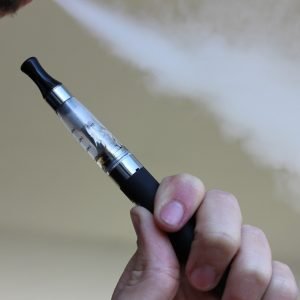
A teen from Canada experienced a dramatic, rapid increase in breast size after receiving two shots of the Pfizer COVID vaccination, a recent case report revealed.
The unidentified 19-year-old had a tingling sensation in her breasts and noticed that they grew from a size B within a week of receiving her first dose in September 2022, with further growth to a triple G within six months after receiving the second shot. Researchers have identified her condition as Pseudoangiomatous stromal hyperplasia (PASH)-associated gigantomastia, an “exceedingly rare” condition linked to COVID-19 vaccination.
PASH is a benign condition caused by lesions in breast tissue linked to hormones. Gigantomastia, or rapid excessive breast growth can typically occur due to factors such as obesity, medications, hormone changes, autoimmune conditions, and genetics. The researchers who investigated the teen’s case noted that fewer than 20 cases of PASH presenting as bilateral gigantomastia have been reported worldwide.
“This case is the first to demonstrate a temporal association between PASH-associated gigantomastia and a vaccine,” the researchers wrote in the report titled The “Pfizer Boob Job”: A Case of Unexplained Gigantomastia, published in PRS Global Open.
The researchers noted that when the patient presented her concerns that the vaccine caused her breast growth, they were not adequately addressed by her primary care physicians, leading to mistrust in the healthcare system.
“Although a temporal relationship does not establish causality, dismissing patient concerns can erode trust. Physicians should consider and value patient concerns when developing therapeutic relationships,” they added.
Doctors could not find any hormonal changes in her blood work. They prescribed steroids and antibiotics, but these treatments were ineffective.
The teen later underwent bilateral breast reduction mammoplasty, during which nearly 3.6 kilograms (7.9 pounds) of tissue were removed. However, the surgeons could not completely remove excess tissues as the procedure had to be halted due to significant blood loss.
After the surgery, she has not experienced any further recurrence of breast growth. The doctors are now considering further breast reduction to correct asymmetry and return to her normal breast size.
“Further research is needed to understand PASH etiology, refine gigantomastia classification, and explore the potential link between the Pfizer vaccine, gigantomastia, and PASH,” the researchers wrote.







